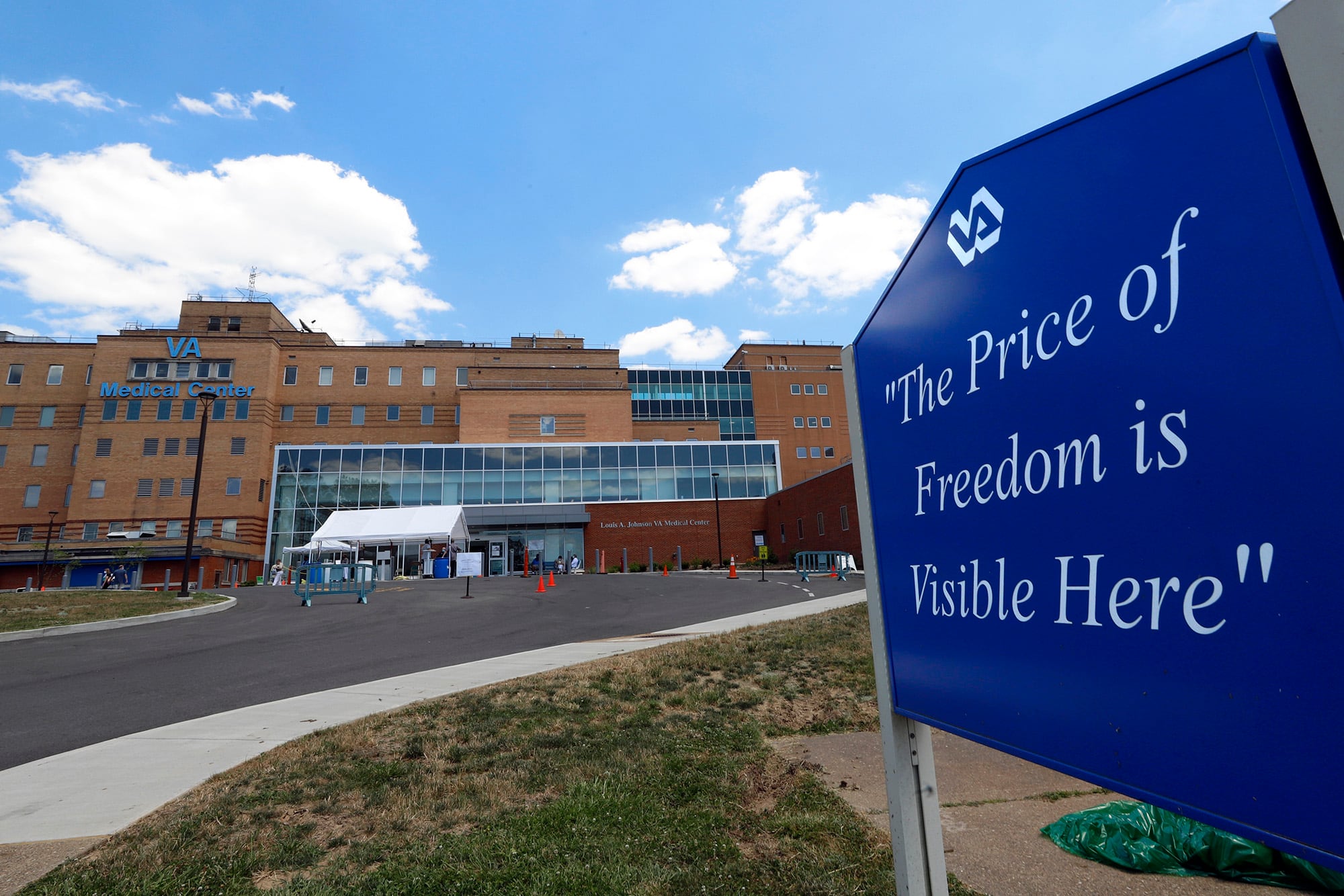Inadequate oversight by Veterans Affairs senior leaders and a fear of whistleblower reprisal among other staffers allowed a department pathologist to make thousands of serious medical errors, including the deaths of at least two patients, according to the findings of a scathing investigative report released Wednesday.
The findings from the VA Inspector General focus on the actions of Robert Morris Levy, a former staffer at the Veterans Health Care System of the Ozarks in Arkansas from 2005 to 2018.
In January, he was sentenced to 20 years in prison for involuntary manslaughter and mail fraud connected to the mistakes, brought to light after several years of investigation by VA and law enforcement authorities.
The critical report also comes less than a month after another damning set of findings on institutional failures connected to a former VA nursing assistant in West Virginia who killed at least seven patients, tragedies the inspector general said may have been prevented with better communication and oversight by facility leaders.
RELATED

In Levy’s case, officials found “a culture in which staff did not report serious concerns in part because of a perception that others had reported [the problem] or they were concerned about reprisal.”
Senior leaders who knew about Levy’s struggle with alcoholism and past unethical behaviors failed to fully monitor his work, even amid concerns that he may be manipulating medical reports. Investigators also criticized leaders who “failed to promote a culture of accountability” at the site.
“Any one of these breakdowns could cause harmful results,” the report states. “Occurring together and over an extended period of time, the consequences were devastating, tragic, and deadly.”
Levy was arrested in March 2018 for suspicion of drunk driving in a parking lot near the VA hospital while he was supposed to be on duty. He was fired then, and officials initiated a review of his past work to look for any potential patient care problems.
They found more than 3,000 errors, including 589 “major diagnostic discrepancies” with serious repercussions for patients. In at least two cases, Levy overlooked clear evidence of cancers which, if treated earlier, may have saved the patients’ lives.
Supervisors had suspected Levy was drinking alcohol while on duty as far back as 2015. He was temporarily suspended In 2016, but reinstated by department and state medical officials after completing an addiction treatment program.
But prosecutors said Levy cheated drug tests and falsified records to cover up his relapses. As a result, he continued reviewing sensitive patient medical information while intoxicated, potentially issuing incorrect or dangerous diagnoses for thousands of veterans.
The IG report said some of those mistakes could have been prevented with better policies and procedures at the medical center.
Under VA rules, much of Levy’s work should have been reviewed by a second department pathologist, but Levy for years altered records to make it appear as if his work had undergone that extra check. Officials higher up missed the forgeries in their work.
Investigators also noted that Levy’s alcohol use on the job was noticed by multiple staff members, but most opted not to report the problems because of fear of reprisal from the doctor and his supervisors and confusion surrounding the chain of command. One staff member who did report the improper behavior “felt belittled” by leadership after doing so.
And investigators said that officials failed to follow up on Levy’s past alcohol-related legal issues before his 2005 hiring, which might have disqualified him from the sensitive patient work. The inspector general found similar problems with pre-hiring background checks in the West Virginia case.
RELATED

In a statement, VA Inspector General Michael Missal called the findings “a reminder for all VHA facilities of the potential consequences of failing to have open communications and an effective patient safety program.”
VA officials promised reforms in response to the case.
“We are deeply saddened by the harm Dr. Levy committed against our veterans,” Richard Stone, acting under secretary for health at VA, said in a statement.
“Our medically vulnerable patients trusted him with their care and several lost their lives due to his behavior. VHA condemns his actions and is committed to improving processes to ensure safe care for veterans across the system.”
In a separate statement, VA officials noted that Levy “sought to deceive the government, and VA was not aware of the actions he took to conceal his errors. Once the full extent of his actions was known, VA worked immediately to enact process changes ... that would prevent any provider from causing tragic patient harm.”
VA officials said new policies regarding medical report reviews will be in place by the end of the summer. A full review of facility leadership response and responsibility is expected to be finished by this fall.
Department leaders are also looking into potentially requiring mandatory alcohol testing policy for on-duty staff, following confusion over whether Levy was required to submit to such testing before his 2016 treatment program. VA has also creating a new quality analyst position at focused solely on pathology and laboratory issues.
The full report is available on the VA Inspector General’s web site.
Leo covers Congress, Veterans Affairs and the White House for Military Times. He has covered Washington, D.C. since 2004, focusing on military personnel and veterans policies. His work has earned numerous honors, including a 2009 Polk award, a 2010 National Headliner Award, the IAVA Leadership in Journalism award and the VFW News Media award.





